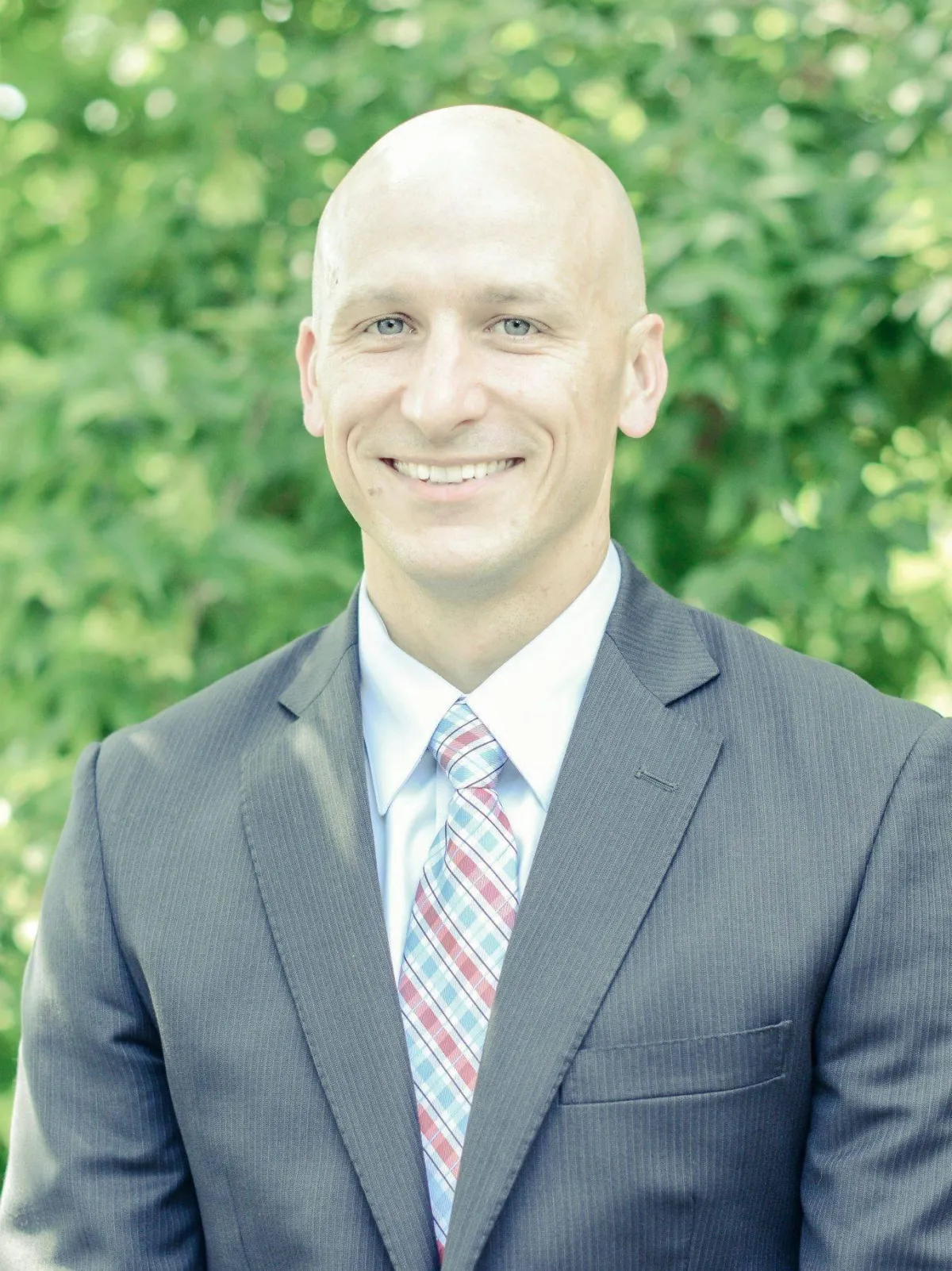Downriver Injury & Auto Law
Don't hire a billboard. Hire an attorney.
Elite legal representation, right here in Downriver.
Welcome to Downriver Injury & Auto Law, where we provide compassionate, experienced, and aggressive legal representation for accident victims. Serving the Detroit and Wayne County area, our team is dedicated to guiding you through difficult times and ensuring you receive the compensation you deserve.

Auto Accidents & No-Fault Benefits
Michigan No-Fault Insurance Claims
Processing and maximizing PIP benefits
Navigating the complex 2019 No-Fault reform changes
Ensuring proper medical expense coverage
Personal Injury Protection (PIP) Benefits Recovery
Medical expense reimbursement
Lost wage recovery (up to 85% for three years)
Attendant care and replacement services
Third-Party Auto Negligence Claims
Pain and suffering compensation
Excess economic loss claims
Permanent impairment cases
Insurance Company Disputes
Denied claim advocacy
Benefit termination challenges
Independent Medical Examination (IME) rebuttals

Truck & Commercial Vehicle Accidents
Semi-Truck Collisions
Federal regulation violations
Multi-party liability cases
Catastrophic injury specialization
Commercial Vehicle Liability
Corporate negligence claims
Employer liability
Commercial insurance complexities
Delivery Van Accidents
Amazon/FedEx/UPS vehicle incidents
Gig economy delivery driver accidents
Last-mile delivery risks
Work Vehicle Injuries
On-the-job accident claims
Workers' compensation coordination
Third-party liability claims

Motorcycle Accidents
Motorcycles not considered "motor vehicles" under No-Fault
Special insurance considerations
Coordinating auto and motorcycle coverage
Helmet Law Changes & Implications
Post-reform injury considerations
Insurance coverage differences
Liability impact for non-helmeted riders
No-Fault Benefits for Motorcyclists
Qualifying for PIP benefits
Order of priority for benefits
Navigating exclusions and limitations

Industrial & Workplace Injuries
Manufacturing & Factory Accidents
Industrial equipment injuries
Chemical exposure cases
Safety regulation violations
Construction Site Injuries
Falls from heights
Equipment/machinery accidents
OSHA violation claims
Workers' Compensation Coordination
Maximizing benefits from multiple sources
Third-party liability claims
Long-term disability coordination

Premises Liability (Property-Related)
Slip and Fall Accidents
Winter weather conditions (ice/snow)
Retail and commercial property incidents
Municipal property claims
Negligent Security Cases
Apartment complex security failures
Commercial property inadequate security
Parking lot/garage incidents
Property Owner Liability
Landlord negligence
Building code violations
Maintenance failure cases

Catastrophic Injuries
Traumatic Brain Injuries (TBI)
Mild to severe TBI cases
Long-term care planning
Cognitive rehabilitation support
Spinal Cord Injuries
Paralysis cases
Ongoing medical care needs
Home modification requirements
Severe Burns
Auto fire cases
Industrial burn injuries
Reconstruction and rehabilitation
Amputation & Loss of Limb
Prosthetic needs
Vocational rehabilitation
Life care planning

Wrongful Death
Fatal Auto Accidents
Family support services
Estate complications
Insurance claim processing
Family Compensation
Loss of financial support
Loss of companionship
Funeral expense recovery
Survivor Benefits
No-fault survivor benefits
Long-term financial planning
Minor children considerations

Pedestrian & Bicycle Accidents
Crosswalk Accidents
Right-of-way violations
Distracted driver cases
Municipal liability assessment
Bike Lane Collisions
"Dooring" incidents
Right-turn conflicts
Bike infrastructure failures
Sidewalk Injuries
Municipal maintenance failures
Construction zone hazards
Property owner liability
Non-Motorist Rights
Educational resources
Legal protections
Insurance coverage options
Who We Are
About Downriver Injury & Auto Law
Proven Experience
Aaron Cox is the principal attorney at Downriver Injury & Auto Law, bringing over 18 years of litigation experience to the firm. During Aaron’s career, he has tirelessly litigated his downriver Michigan client’s cases throughout state and federal courts. His dedication to fighting for the rights of his clients remains unwavering, ensuring that individuals and families receive the justice and compensation they deserve for all injury claims, including auto injury, premises liability, constitutional violations, negligence, and class actions. Known for his tenacity and commitment, Aaron is driven to help those in the Downriver Area get the justice they deserve.

Wayne County Defies Michigan Supreme Court Ruling on Tax Foreclosure Surplus
This recent op-ed by Attorney Aaron Cox explores Wayne County’s defiance of the Michigan Supreme Court ruling regarding tax foreclosure surplus profits. The citizens affected continue to wait for millions in owed funds. Read the full article on
CONSULTING IS FREE JUST FOR YOU
We believe everyone deserves access to legal advice, which is why we offer free consultations tailored to your personal injury case. During this session, we will review your situation, answer any questions you have, and provide clear guidance on your legal options. There's no obligation—just expert advice to help you make the best decision for your future.

Testimonials

The team was incredibly supportive throughout my case. They fought tirelessly for my rights and secured a settlement that changed my life. I couldn’t be more grateful for their expertise and dedication!
John D


From the first consultation to the final resolution, they made me feel confident and informed every step of the way. Their professionalism and commitment were truly impressive, and I’m thankful for the outcome they achieved.
Sarah M

Frequently Asked Questions
How do I know if I have a personal injury case in Michigan?
You may have a case if you were hurt because of another person’s negligence (for example, distracted driving on Fort Street or unsafe conditions at a Downriver business) or intentional harm. Michigan law allows you to recover medical bills, lost wages, replacement services, and—if your injuries meet the “serious impairment” threshold—pain and suffering. Call us for a free consultation and we’ll evaluate your specific facts under Michigan’s no-fault and third-party rules.
What is Michigan’s no-fault system and how does it affect my claim?
Under Michigan’s no-fault law, your own auto policy pays for your medical care and 85% of lost wages after a crash (regardless of fault), up to your chosen PIP limits. You can only sue the at-fault driver for “serious” injuries—such as permanent disfigurement, disability, or death—once your medical bills exceed your policy or your injuries meet statutory thresholds.
How long will my case take to resolve?
Every case is different. Simple rear-end collisions with minor injuries can settle in 4–6 months. Catastrophic injury or wrongful-death cases—especially those involving federal FMCSA or construction-zone claims—often take 12–24 months or longer, depending on medical treatment timelines, insurance investigations, and, in some instances, court scheduling.
What should I do immediately after a Downriver auto accident?
Seek medical care—even if you feel fine, some injuries appear later.
Report to your insurer within 30 days to preserve PIP benefits.
Document the scene with photos of damage, skid marks, and road signs (e.g., Jefferson Avenue intersections).
Collect witness names—truck-traffic or delivery-van accidents often have bystanders.
Contact us right away—we’ll help you navigate PIP paperwork, deadlines, and gather evidence before it disappears.
Can I still recover if I was partially at fault?
Yes. Michigan’s modified comparative negligence rule lets you recover as long as you’re 50% or less at fault. Your award is reduced by your percentage of fault. For example, if you’re found 30% responsible, a $10,000 verdict becomes $7,000. Note: if you over 50% at fault, you cannot recover non-economic damages (pain and suffering).
What if my insurer denies or underpays my PIP benefits?
Insurance companies often dispute claims or delay payment, especially after motorcycle, commercial-truck, or catastrophic-injury cases. We can file a PIP benefits lawsuit in Wayne County Circuit Court, compel payment of medical bills, and pursue extra-contractual damages if the denial was unreasonable.
How much does it cost to hire Downriver Injury & Auto Law?
We work on a contingency-fee basis—there are no upfront legal fees. You pay only if we recover for you (through settlement or verdict). Our fee comes out of the award, so you can focus on healing while we handle the legal work.
What are the statutes of limitations for injury claims in Michigan?
General personal injury: 3 years from the date of accident.
Medical malpractice: 2 years from date of discovery (but no more than 6 years from the act).
Wrongful death: 3 years from date of death.
Missing these deadlines can bar your claim, so contact us promptly.
Quick Links
Home
About
Booking
Address
Contact Us
Downriver Injury & Auto Law
23394 Goddard Rd, Taylor Michigan 48180
(734) 789-3921
Connect
